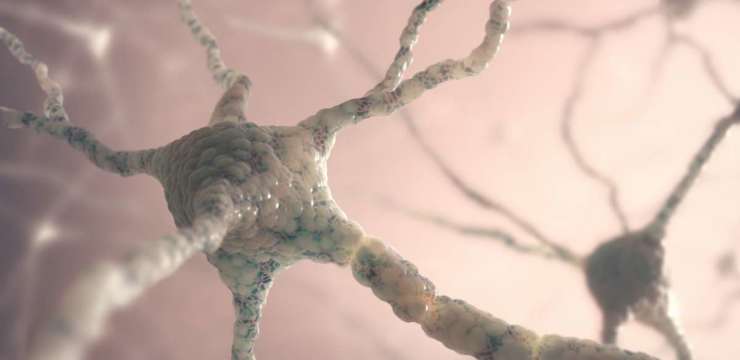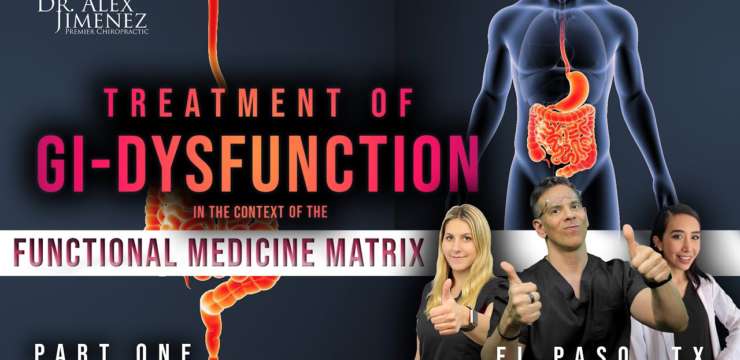
Table of Contents
Restoring Balance: How Coaching, Chiropractic, and Integrative Care Relax Constantly Contracting Gluteal Muscles

Introduction – From Pain to Power: Jamie’s Story
Jamie, a 38-year-old marketing consultant in El Paso, had a demanding desk job that kept them seated for 10–12 hours most days. At first, the dull ache in the hips after work felt like nothing more than stiffness from sitting too long. But over months, that stiffness turned into a constant, gripping tension deep in the buttocks — a sensation like the muscles were clenched and wouldn’t let go.
Daily tasks became harder. Standing up after meetings felt like pushing against invisible resistance. Exercise routines were abandoned because every movement triggered discomfort. Sleep suffered, too, because rolling over in bed sent sharp reminders that something wasn’t right.
When Jamie came to Dr. Alexander Jimenez, chiropractor, family nurse practitioner, and health coach at Health Coach Clinic, they learned that this wasn’t just “tight muscles.” Jamie’s pelvic alignment, spinal posture, nerve signaling, and even stress levels were feeding into a cycle that kept the gluteal muscles in constant contraction.
What followed was not just treatment, but a complete lifestyle transformation — combining chiropractic care, functional medicine, targeted exercise, nutrition coaching, and daily habit-building strategies. Within months, Jamie was moving freely, sleeping better, and had a toolkit of self-care habits to prevent the problem from coming back.
(Kirk Chiropractic, n.d.; Dr. Alexander Jimenez, n.d.)
Why Gluteal Muscles Stay Constantly Contracted
Your glutes — gluteus maximus, medius, and minimus — are vital for hip movement, stability, and posture. But they can get “stuck” in an overactive state when:
- Pelvic or spinal misalignment changes muscle length and load.
- Nerve irritation triggers protective muscle guarding.
- Prolonged sitting alters posture and weakens stabilizing muscles.
- Overuse from sports or repetitive work without recovery.
- Compensation when other muscles underperform, forcing glutes to overwork.
Once this pattern sets in, reduced circulation, waste buildup, and nervous system adaptation make the contraction feel “normal” to your body — even though it’s not. This cycle can cause pain in the hips, lower back, hamstrings, or even knees.
In Dr. Jimenez’s coaching-based approach, understanding why the muscles stay tight is the first step. Patients learn that relief is possible when structural, neurological, and lifestyle factors are addressed together.
(Kirk Chiropractic, n.d.; Cruz Chiro Wellness, n.d.)
How Posture and Pelvic Alignment Feed the Problem
Your pelvis is the foundation for your spine and hips. If it’s tilted or rotated out of position, muscle length and tension change on both sides of your body. For example:
- Anterior pelvic tilt keeps glutes shortened and hip flexors tight.
- Pelvic rotation causes uneven glute activation and lumbar stress.
- Lumbar misalignment can irritate the nerves that control glute muscles.
At Health Coach Clinic, Dr. Jimenez uses functional movement assessments, digital posture analysis, and chiropractic evaluations to identify these patterns. Correcting alignment relieves abnormal pressure on the glutes and restores balanced muscle function — an essential step before retraining muscle use.
(Grant Chiropractic, n.d.; Dr. Alexander Jimenez, n.d.)
Nervous System Retraining – Breaking the “Always On” Cycle
Constant gluteal contraction isn’t just a muscle issue — it’s a brain and nerve issue. When the nervous system senses injury or instability, it can keep certain muscles on high alert. This neuromuscular guarding can last long after the original problem is gone.
Dr. Jimenez integrates:
- Chiropractic adjustments to restore normal joint movement and nerve flow.
- Proprioceptive exercises to improve body awareness and control.
- Mindfulness-based stress reduction to reduce neurological tension.
- Breathing techniques to help reset muscle tone via the parasympathetic nervous system.
By combining structural correction with nervous system retraining, patients not only feel better — their bodies learn to stay better.
(Chiropractic Health, n.d.; Prime Sports Med, n.d.)
Chiropractic Care as a Catalyst for Change
In-office chiropractic care is a cornerstone of recovery. Adjustments can:
- Reduce nerve irritation.
- Correct pelvic and spinal misalignment.
- Improve joint motion and muscle relaxation.
At Health Coach Clinic, chiropractic care is never a one-off solution. Dr. Jimenez combines adjustments with movement coaching, stretching routines, and functional medicine insights to ensure structural changes are reinforced by daily habits.
(Myevolve Chiropractor, n.d.; Trident Health Chiropractic, n.d.)
The Role of Integrative Therapies
To fully relax overactive glutes and restore balance, Dr. Jimenez often adds:
- Massage therapy and myofascial release to reduce adhesions.
- Instrument-assisted soft tissue mobilization (Graston/Gua Sha) for stubborn tightness.
- Acupuncture to release muscle tension and improve circulation.
- Therapeutic exercise for core and hip stability.
These therapies work synergistically with chiropractic care, improving both immediate relief and long-term results.
(Prime Sports Med, n.d.)
Nutrition and Functional Medicine for Muscle Health
Dr. Jimenez’s functional medicine background allows him to address systemic contributors to muscle overactivity, such as:
- Inflammation (CRP, ESR testing).
- Nutrient deficiencies (magnesium, vitamin D, B-complex).
- Hormonal imbalances affect muscle tone.
Nutrition plans often include:
- Anti-inflammatory foods (leafy greens, berries, fatty fish).
- Magnesium-rich foods (spinach, almonds, pumpkin seeds).
- Adequate protein for muscle repair.
- Hydration strategies to maintain electrolyte balance.
By combining chiropractic adjustments with nutritional support, muscle recovery is faster and more sustainable.
Stress Management and Mental Wellness
Chronic stress can tighten muscles through elevated cortisol and nervous system overactivity. As part of the Health Coach Clinic model, patients are guided in:
- Daily mindfulness or meditation practice.
- Breathing exercises to trigger relaxation.
- Sleep hygiene habits to promote recovery.
- Time management to reduce work-related stress.
This whole-person approach ensures that physical recovery isn’t undermined by ongoing emotional or mental strain.
Weekly Action Plan Template
Goal: Reduce gluteal muscle tension, improve posture, and retrain the nervous system.
Daily Habits
- Morning: 5 minutes of hip stretches + posture check-in.
- Workday: Stand up every 45 minutes; do 1–2 minutes of walking or mobility work.
- Evening: 10 minutes of relaxation stretching or foam rolling.
- Night: 5 minutes of deep breathing before bed.
Weekly Focus
- Chiropractic session (if in active care phase).
- Massage or myofascial release once per week.
- Strength training for the hips and core twice per week.
- Mindfulness practice at least three times per week.
Tracking Tools
- Journal muscle tension ratings each day.
- Note energy, mood, and sleep quality.
- Adjust the plan weekly based on progress.
Before-and-After: Jamie’s Transformation
Before: Jamie sat most of the day, felt sore and stiff constantly, skipped workouts, and had restless sleep.
After: Through chiropractic care, functional medicine nutrition, integrative therapies, and coaching-based habit changes, Jamie:
- Restored normal pelvic alignment.
- Significantly reduced gluteal tension.
- Returned to regular exercise without pain.
- Improved energy, mood, and sleep quality.
Conclusion – Coaching Meets Clinical Care
Constantly contracting gluteal muscles are more than a localized problem — they’re a sign of deeper postural, neurological, and lifestyle imbalances. At Health Coach Clinic, Dr. Alexander Jimenez blends chiropractic care, integrative therapies, functional medicine, and health coaching to create a recovery plan that addresses both body and mind.
The result? Not just relief, but a healthier, more resilient lifestyle that supports long-term musculoskeletal health.
References
- Chiropractic Health. (n.d.). A muscle problem is not always a problem with the muscle.
- Cruz Chiro Wellness. (n.d.). Tight glute muscles and low back pain.
- Grant Chiropractic. (n.d.). How hip misalignment affects your body.
- Kirk Chiropractic. (n.d.). Hip and buttock (gluteus medius/minimus) syndrome.
- Myevolve Chiropractor. (n.d.). What role does a chiropractor play in reducing muscle tension?
- Prime Sports Med. (n.d.). Muscle tightness.
- Trident Health Chiropractic. (n.d.). The science behind chiropractic care and muscle recovery.
- Dr. Alexander Jimenez. (n.d.). Clinical observations and integrative care expertise.
Disclaimers
Professional Scope of Practice *
The information herein on "Gluteal Muscle Recovery Coaching to Alleviate Pain" is not intended to replace a one-on-one relationship with a qualified health care professional or licensed physician and is not medical advice. We encourage you to make healthcare decisions based on your research and partnership with a qualified healthcare professional.
Blog Information & Scope Discussions
Welcome to El Paso's wellness blog, where Dr. Alex Jimenez, DC, FNP-C, a board-certified Family Practice Nurse Practitioner (FNP-C) and Chiropractor (DC), presents insights on how our team is dedicated to holistic healing and personalized care. Our practice aligns with evidence-based treatment protocols inspired by integrative medicine principles, similar to those found on dralexjimenez.com, focusing on restoring health naturally for patients of all ages.
Our areas of chiropractic practice include Wellness & Nutrition, Chronic Pain, Personal Injury, Auto Accident Care, Work Injuries, Back Injury, Low Back Pain, Neck Pain, Migraine Headaches, Sports Injuries, Severe Sciatica, Scoliosis, Complex Herniated Discs, Fibromyalgia, Chronic Pain, Complex Injuries, Stress Management, Functional Medicine Treatments, and in-scope care protocols.
Our information scope is limited to chiropractic, musculoskeletal, physical medicine, wellness, contributing etiological viscerosomatic disturbances within clinical presentations, associated somato-visceral reflex clinical dynamics, subluxation complexes, sensitive health issues, and functional medicine articles, topics, and discussions.
We provide and present clinical collaboration with specialists from various disciplines. Each specialist is governed by their professional scope of practice and their jurisdiction of licensure. We use functional health & wellness protocols to treat and support care for the injuries or disorders of the musculoskeletal system.
Our videos, posts, topics, subjects, and insights cover clinical matters, issues, and topics that relate to and directly or indirectly support our clinical scope of practice.*
Our office has reasonably attempted to provide supportive citations and has identified the relevant research studies or studies supporting our posts. We provide copies of supporting research studies available to regulatory boards and the public upon request.
We understand that we cover matters that require an additional explanation of how they may assist in a particular care plan or treatment protocol; therefore, to discuss the subject matter above further, please feel free to ask Dr. Alex Jimenez, DC, APRN, FNP-BC, or contact us at 915-850-0900.
We are here to help you and your family.
Blessings
Dr. Alex Jimenez DC, MSACP, APRN, FNP-BC*, CCST, IFMCP, CFMP, ATN
email: coach@elpasofunctionalmedicine.com
Licensed as a Doctor of Chiropractic (DC) in Texas & New Mexico*
Texas DC License # TX5807
New Mexico DC License # NM-DC2182
Licensed as a Registered Nurse (RN*) in Texas & Multistate
Texas RN License # 1191402
ANCC FNP-BC: Board Certified Nurse Practitioner*
Compact Status: Multi-State License: Authorized to Practice in 40 States*
Graduate with Honors: ICHS: MSN-FNP (Family Nurse Practitioner Program)
Degree Granted. Master's in Family Practice MSN Diploma (Cum Laude)
Dr. Alex Jimenez, DC, APRN, FNP-BC*, CFMP, IFMCP, ATN, CCST
My Digital Business Card





